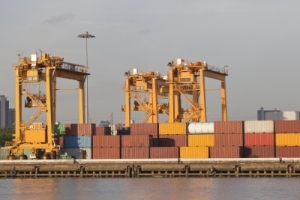As more companies come to recognize the value in aggressively taking charge of their supply chains, some surprising opportunities have begun to emerge. Once thought of as relatively unpromising when it came to tax efficiency issues, Supply Chain Management is now widely recognized as an undertaking where strategic improvements can have an important impact on an enterprise’s final numbers.
Figuring out just how to restructure a supply chain to maximize these benefits, though, can be incredibly difficult. Every proposed alteration to an existing supply chain entails a number of side effects, with tax ramifications never being more than one part of a complex picture. That is why most companies that succeed in this endeavor do so with the help of specialists at International Supply Chain Management.
With a reliable, studied view of the situation already in place, experts of this kind like BIS Henderson Consulting are much better positioned than most companies to identify worthwhile supply chain alterations. Because international Supply Chain Management is such a complex and delicate matter to begin with, assistance of this kind is therefore often the best way of making progress.
The results from are also quite frequently worth whatever effort is involved. As tax codes around the world have tended to become more complicated, supply chains that are suboptimal from a tax perspective have also become more commonplace. That simple fact entails an accompanying proliferation of opportunities for improvement, many of which are likely to be substantial. Even subtle alterations to a manufacturing pipeline, for example, can produce tax-related returns that dwarf the gains that might be expected from improved operational efficiency.
While they have existed in some form or another for decades, opportunities of this kind were formerly harder to identify and Global Logistics consulting take advantage of. It is likely that the rise of specialized supply chain consultants has made these possibilities more profitable for companies of all kinds to seize, and the potential only grows with the passing of time.
Although there is something of a worldwide movement afoot to simplify the tax regimes that so often result in complications, it seems unlikely that even the most ambitious of these will erase such possibilities entirely. That means that keeping a close eye on the tax implications of existing supply chain arrangements will remain an important task for some time to come. Of course, it also entails that every new supply chain development should also receive the same kind of scrutiny, because these tax entailments can easily prove to be just as important as financial details of any other sort.
